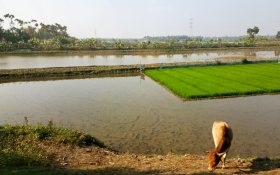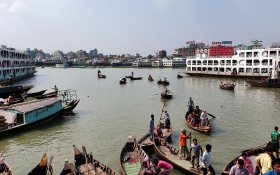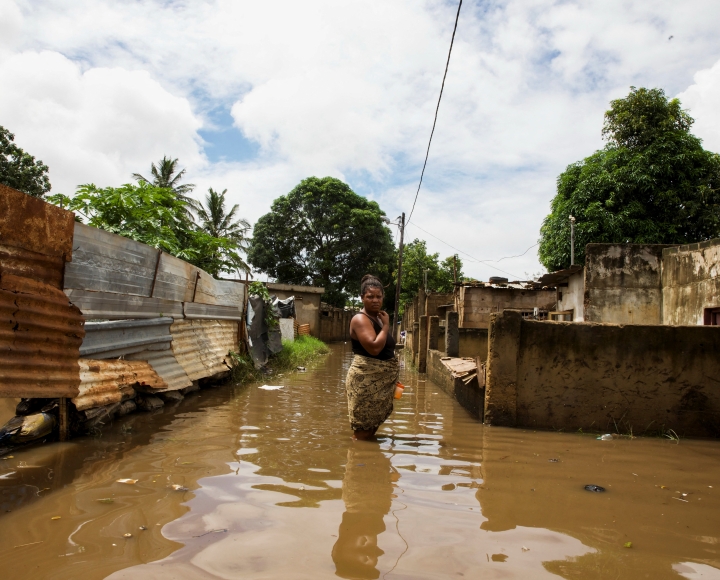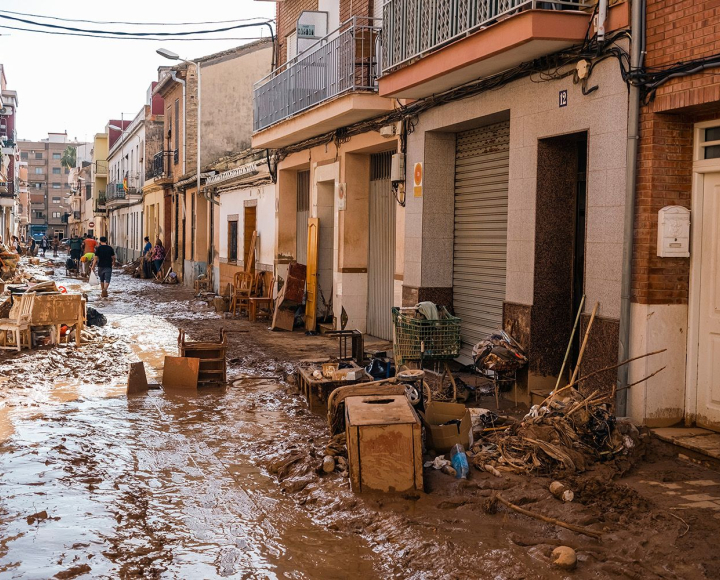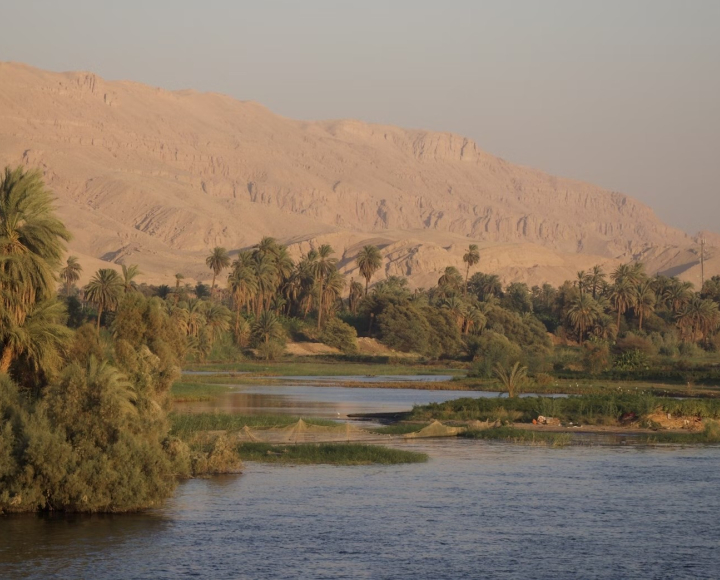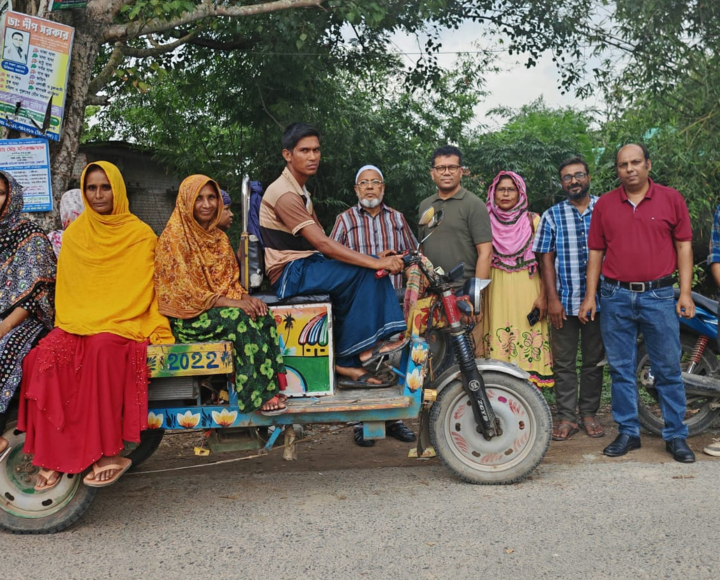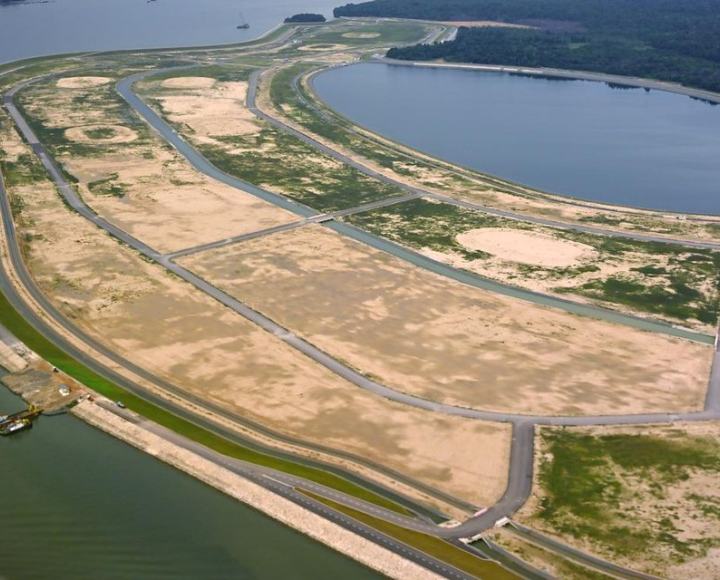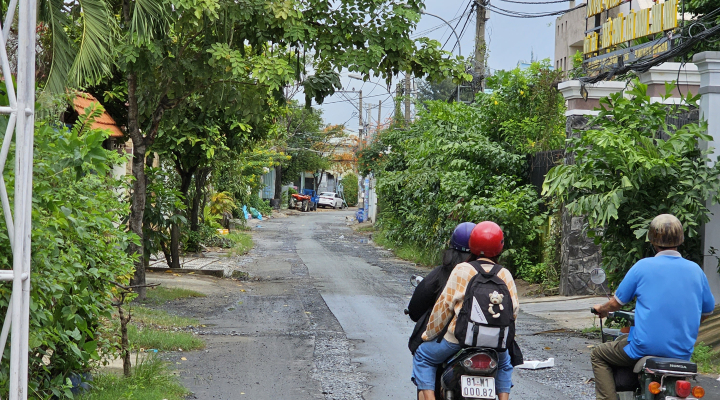The changing water supply of Dhaka
Too little drinking water, no sewer systems, and waste everywhere. The unhygienic living conditions in slums lead to serious health consequences. There is often too little money and knowledge to tackle these challenges, but ownership over water and sanitation services is proving that change is possible. Delta expert and publicist Joep Janssen set out to see how Bangladeshi and Dutch organisations are working to improve the situation in Dhaka.
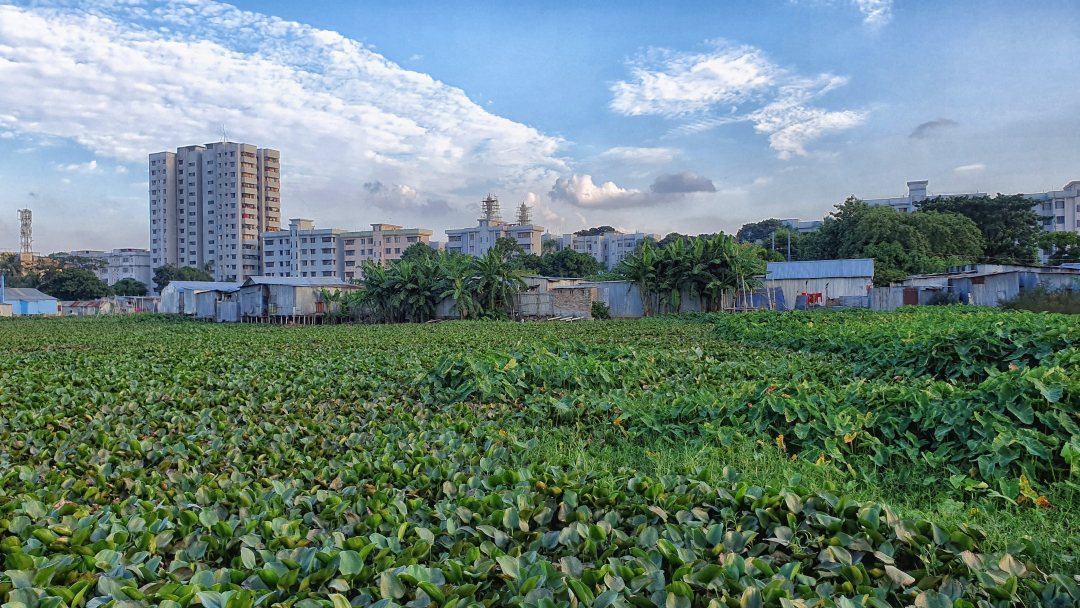
In Dhamalkot, one of the slums in Dhaka, people live close together in houses made from bamboo and metal sheets. The slum is a stark contrast to the adjacent middle-class area. As we sit in these surroundings, Rahima Khatun, a 55-year-old resident, tells me about her financial situation. She earns 19 thousand Taka per month, which is around 200 Euro, by renting out extra rooms. All the money goes to the study of her son, food, electricity, and gas for cooking. She also pays the water bill. This is something new because she used to tap illegally into city water pipes. These improvised connections used to cause health problems, because most of them are cracked and run in ditches that are filled with sewage.
“The lack of water slowed down our daily lives,” says Khatun. “I was queuing up to use the pump for collecting drinking water every night between twelve and five, because during the day water was only available for wealthy residents in the neighbouring area. To save time and money, we drank unboiled water.”
It became difficult to cook, shower, and use the toilet without using water. Now, her life has been changed. “We don’t have to deal with a water shortage anymore. The clean water comes straight out of the tap.”
Change
The story of Khatun shows me that with limited resources a big difference can still be made to someone’s life. But who makes this difference? Is it the residents who raise their voice? Is it policymakers who show courage? Or the engineers who installed the water and sanitation services? With these questions in mind, I started a conversation with the managing director of the water company in Dhaka, Taqsem Khan. His office is being thoroughly renovated. Throughout our conversation we hear the staccato pounding of a pneumatic drill. Dhaka Water Supply & Sewerage Authority (DWASA) is in a permanent state of change.
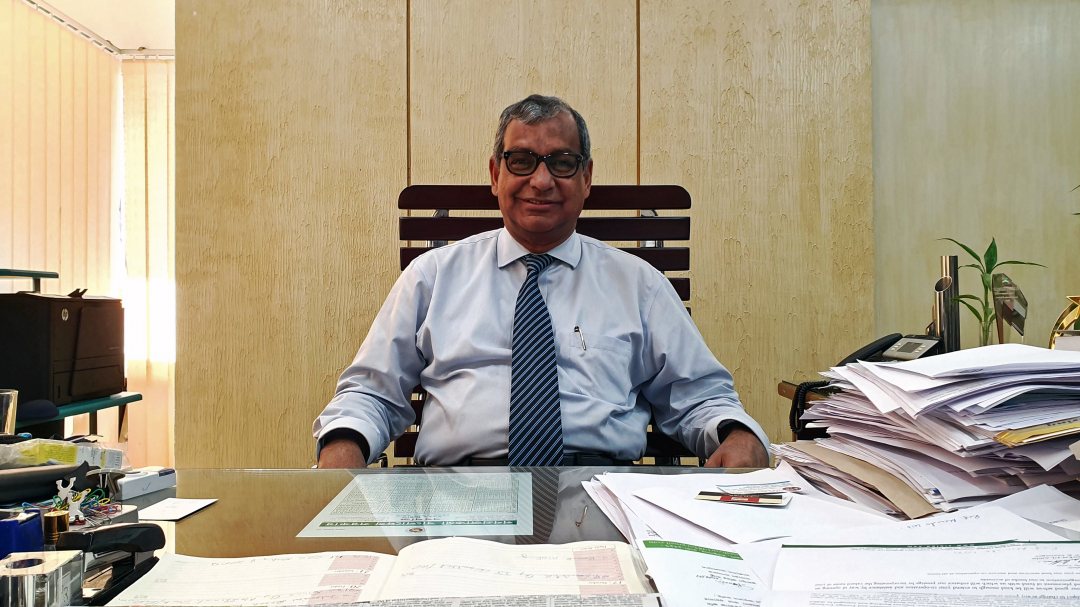
Progress
Over the past ten years, something special has happened in Dhaka's water management. It started in 2009 when Khan presented his ambition that DWASA will be the best water utility company in the public sector of South Asia by 2021. That means sustainable and accessible drinking water for everyone. “Groundwater extraction in the city is not sustainable,” says Khan. “The city is sinking by a few centimetres every year. To counteract this danger, we have started the large-scale supply of river water and the construction of several water treatment plants for this water. In this way we reduce our dependence on ground water from 80 to 20 percent.”
“We have also halved the losses in the drinking water network to 20 percent. We connect slums to the formal water network which results in a reduction of illegally tapped drinking water, and we maintain pipes better to reduce leakage. This is a result of close cooperation with international aid organisations and financial institutions such as the World Bank and Asian Development Bank.”
“Don't get me wrong, it is not perfect yet. For example, the construction of sewers is not fast enough. On top of that, knowledge transfer could be improved. The Netherlands helps us with this. We want to intensify our knowledge building, not only here in Bangladesh, but also together with other partners in Nepal, Uganda and India.”
The approach resulted in a considerable number of awards, such as the Water Leader’s Award and the Water Performer of The Year.
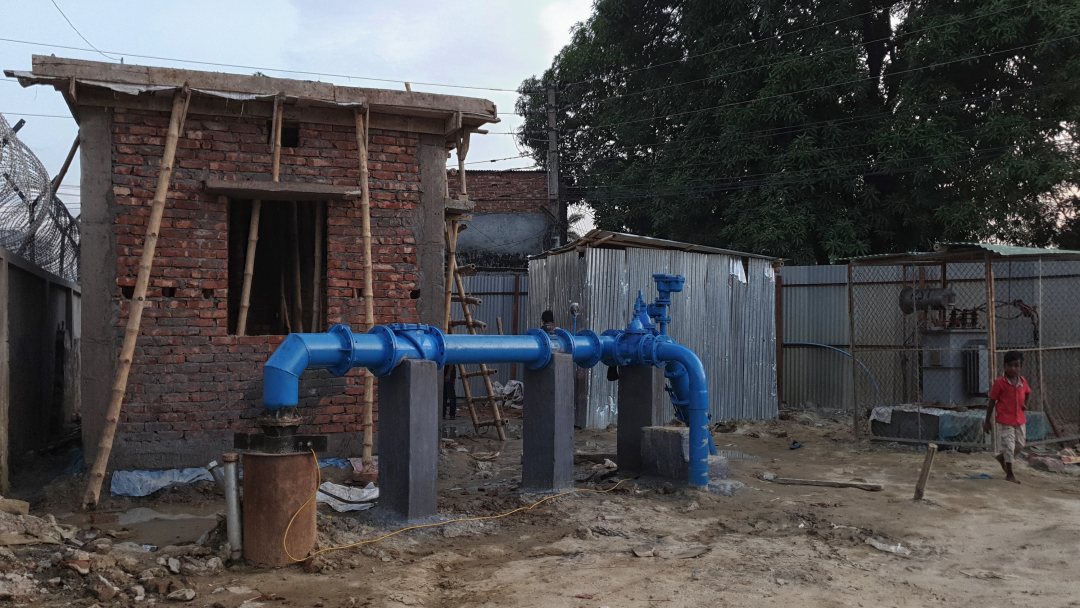
Encourage ownership
“Bangladesh is making many improvements,” says Boudewijn Sterk of VEI. His office is in the same building, a few floors up. VEI is helping 25,000 inhabitants in Dhamalkot to get the safe drinking water they need. It is one of those international organisations that contribute to the success of DWASA. “The non-revenue water has been reduced and the billing revenue increases,” Sterk explains. “That is mainly due to the construction of new drinking water infrastructure and extending water access to slum areas. These residents are no longer forced to illegally tap into city water pipes.”
However, what you cannot see could be the most important part of the work. Dutch water professionals provide training to local specialists, which is changing the mindset in the water utility company and the residents of Dhamalkot. “If they feel responsible for water management, the quality will improve, and it will become more of a permanent change. So, we encourage ownership” explains Sterk.
The community-based organisation plays a key role in this approach to slum areas. These water supply committees function in a similar way to other community organisations, like a local tennis club. Ten respected people are brought together in each neighbourhood. These people then represent the community and take part in meetings with the water utility company, landowners, and international organisations.
The committee collects water tax from slum dwellers and manages an account, so minor repairs could be carried out. The committee also helps with hygiene training to prevent diseases. In this way the residents take up the reins and they feel more ownership over their water. This approach is successful, Sterk notes. “We have built trust with both, the professionals of the water utility company and the slum communities. When we engage in dialogue, we learn from each other and always come up with joint solutions.”
At the end of our conversation, I realised that something special started in Dhaka ten years ago. The water and sanitation services have been improved, a new sewage system is being constructed, and knowledge sharing has become more prominent than before. The smart interventions, such as the community-based organisations, can improve quality and profits.
How to proceed with VEI in Bangladesh? The first step is to work on more slum projects like Dhamalkot, Sterk thinks, to show that everything can be done faster, better, and cheaper. “Then we can apply this approach to other smaller cities in the country. So that ultimately everyone – rich or poor – has access to clean drinking water.”
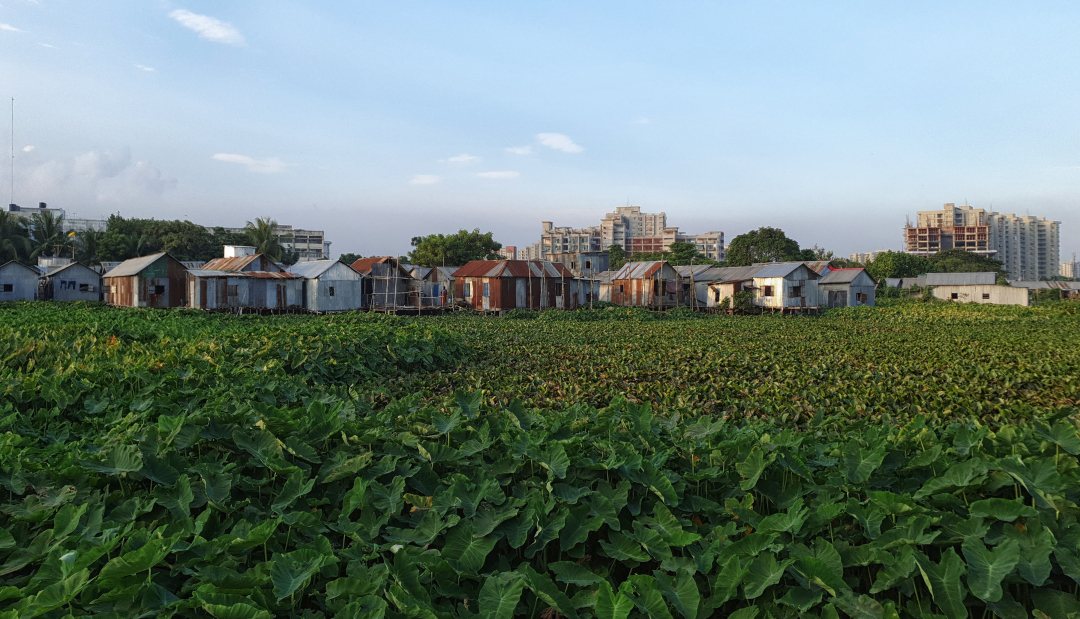
The risk of success
As surprising as it may seem, the unconventional approach is better for slum dwellers, the environment, and the water utility company’s revenues. It is a win-win-win for Dhaka.
Sterk's only criticism is also his ambition. “I want the water utility company to realize that slum dwellers are the most motivated paying customers, because much depends on clean drinking water. When this is realised, you’ll notice an improvement to the overall quality of the water facilities.”
The signals are positive as Dhamalkot begins to attract new residents. Floors are being installed in the houses as living conditions have improved. The risk of this is that the pressure on the water supply increases too fast. The residents of the luxury apartment district across the street have already complained that their water supply has decreased.
Rahima Khatun is also concerned. “My neighbour recently expanded her house, blocking the existing drainage. So, my house is flooded during a rain shower. Because of this, the tenants threaten to leave, and I have a problem.”
The new water and sanitation facilities give her more comfort. Acknowledging the need of fulfilling the rights and realising the potential of slum dwellers, will gradually improve the quality of life in Dhaka.
Booming Bangladesh - a series
Cooperation between Bangladesh and the Netherlands has intensified in recent decades. While Bangladesh experiences rapid and strong economic growth, new challenges and opportunities emerge in the water sector. Within the framework of the Dutch Partners for Water Programme, Delta expert and publicist Joep Janssen collected stories, to gain a better understanding of the local water sector and show the changes that have been jointly initiated. This article is part of a series of interviews called Booming Bangladesh.




